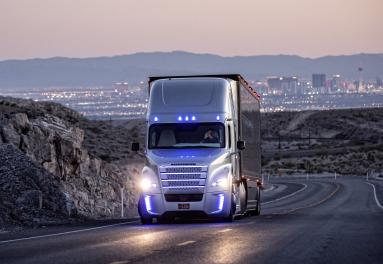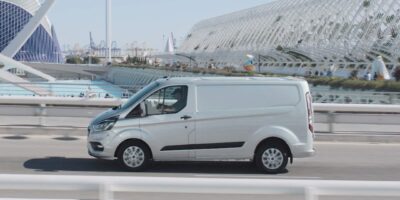Daimler Trucks has announced that it will invest €500 million over the coming years, creating more than 200 new jobs as it pushes to bring trucks with level 4 autonomy to market.
The company says that in commercial trucking, level 4 is the natural next step after level 2, increasing efficiency and productivity for customers, cutting costs per mile significantly. In doing so, Daimler Trucks is skipping the intermediate step of conditionally automated driving (level 3). Level 3 automated driving does not offer truck customers a substantial advantage compared to the current situation
The company unveiled the new Freightliner Cascadia at the Consumer Electronics Show in Las Vegas, which offers partially automated driving features (level 2), making it the first-ever partially automated series production truck on North American roads.
Martin Daum, Member of the Board of Management of Daimler AG with responsibility for Daimler Trucks & Buses, comments: “As a leader of our industry, we’ve been pioneering automated trucking. In 2015, our Freightliner Inspiration Truck got the first road license ever for an automated commercial vehicle. Now we take automated trucking to the next level: we’re ready to launch the first partially automated new Freightliner Cascadia in 2019 – and next, we tackle highly automated trucks. Highly automated trucks will improve safety, boost the performance of logistics and offer a great value proposition to our customers – and thus contribute considerably to a sustainable future of transportation.â€
Daimler is creating 200 new jobs in the area of highly automated driving (level 4). The newly created positions and roles are to be filled primarily by mechatronics engineers or robotics specialists with IT and programming skills. The main location is Daimler Trucks & Buses new Automated Truck Research & Development Centre in Portland (Oregon, U.S.). The centre’s experts are dedicated to all aspects of developing, testing and validating automated vehicles. In addition, the engineers in Portland work in close cooperation with their colleagues in the research and development centres at Daimler Trucks locations in Stuttgart (Germany) and Bangalore (India), thus forming a global network.
Developments from the Mercedes-Benz Cars division suitable for hauliers and their transport needs will also be used at Daimler Trucks. Level 2 systems now available will be raised to level 4 through innovation and the re-definition of existing systems. Despite all the similarities, the requirements for highly automated driving of cars and trucks differ considerably from one another. The sheer size of a truck makes higher demands on the technology than in the passenger car sector as do moving systems on an articulated system, for example. Also, the driving behaviour due to a greater mass or other deceleration values as well as other driving characteristics, for example in curves, place much higher demands on the system. The operating conditions in the transport industry are also much tougher.
Volkswagen and Toyota announced last year that they are to work together in developing electric and autonomous technology for the truck market, with the UK allowing tests of the technology on its motorways, as the industry opens up to the idea of driverless technology.








